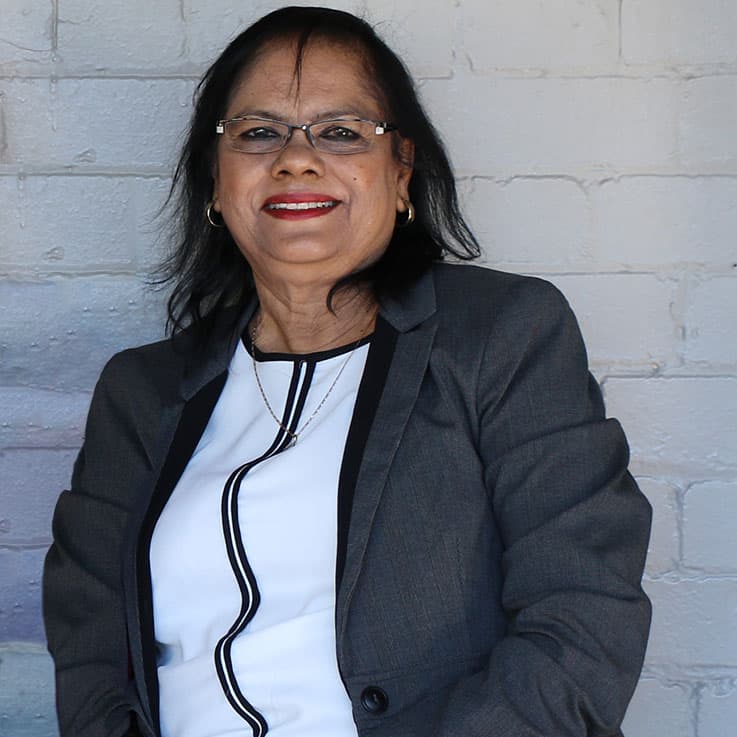
Sara loves putting your support into action

Sara had no idea that volunteering at The Smith Family would change her life forever. Inspired by the chance to bring about real outcomes, Sara became one of our Learning for Life Coordinators. Now she’s on the ground helping students and connecting them to the learning programs you make possible.
“As Learning for Life Coordinators, we have that one-to-one relationship with the family. The family has a point of contact where they are able to go with any questions,” said Sara.
“Our role is very critical. We make a huge impact on families and they have told us this many times.
With one in six children in Australia living in disadvantage,1 there is no shortage of students to support. So we form partnerships with schools in disadvantaged areas. Sara works with these schools to determine which students will benefit from the sponsorship opportunity and take part in our learning programs.
This decision is guided by certain criteria. One priority is a commitment to school attendance because it’s the only way students will get the most out of their education.
“The schools are more aware of the needs of the families and kids in their school,” said Sara.
“If a student has poor attendance, we will speak to the school and they will probably know the reasons why. We’ll work with the family to address that and we may take them on board and monitor their attendance for a semester. Often there is a positive change!
Some parents have mental health issues and that impacts students’ attendance sometimes. Having said that, their commitment to education is high. So we work with them to find ways to support them, such as our learning programs.
“For example, [we connect them with] Learning Club so the kids can do their homework, because the parents are not able to support them with that if they are experiencing mental health issues.”
Sara works across two communities. While the families' backgrounds may be different, one thing remains the same – their dedication to getting the best possible educational outcome for their children.
“On a typical day, I will be talking to someone who has got language difficulties and may have come from a war-torn country. They’re settling into a country which is totally different from their culture. On top of that, their children have this need for education.
Seeing the transformation in disadvantaged students over time gives Sara a real buzz. It takes a long-term solution to break the cycle of disadvantage. Your ongoing support means we can offer students learning program support right throughout their education. And it gets results!
What I find with the migrant or refugee families is that they embrace Australia. They want to work hard and they want to do the best for themselves and for the country as well.
I really see the impact of the work that we do, such as when our Year 12 students graduate. When they say, ‘I’m the first one in my family to graduate Year 12,’ that’s why we celebrate. It’s big!
“We have very high rates of tertiary students from these communities because they believe in education; they believe in change. They want to get out of the situation that they are in.”
“Australia is in the middle of international rankings in terms of poverty, and we shouldn’t be. People in Australia are our people. If they are suffering, we have to take responsibility so that we can bring about equality,” said Sara.
“Let’s all be happy and lead healthy and complete lives. The only way to do this is by giving back. Even if it’s a little. That’s what I believe in.”
Your generosity is giving disadvantaged students the chance to be their best. And Sara loves seeing their stories unfold.
“Families are very appreciative and that makes me content. That’s why I love my job. The impact may be not be seen today, tomorrow or next week, but that impact will one day be visible,” said Sara.
1 Poverty in Australia, 2018, ACOSS/UNSW Report.
